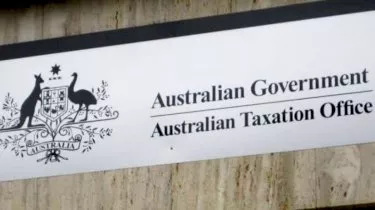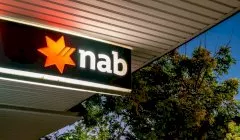Invest
Still using cash? The ATO is watching
As part of a crackdown on the black economy, the Tax Office is set to visit hundreds of businesses to make sure income is being properly declared.
Still using cash? The ATO is watching
As part of a crackdown on the black economy, the Tax Office is set to visit hundreds of businesses to make sure income is being properly declared.

What is the black economy?
According to the office of the Australian Treasury, the black economy refers to people who operate entirely outside of the tax and regulatory system or who are known to the authorities but do not correctly report tax obligations.
What does it cost the national economy?
Assistant commissioner Peter Holt believes that not paying taxes is not a victimless crime, with communities as a whole being worse off.

“The Black Economy Taskforce estimates that the black economy is costing the community as much as $50 billion, which is approximately 3 percent of gross domestic product (GDP). This is money that the community is missing out on for vital public services like schools, welfare, roads, healthcare and infrastructure,” said Mr Holt.
Who is being targeted?
The crackdown will continue in the 2019-20 financial year, with the ATO expecting to visit around 10,000 small businesses across the country.
As part of these visits, the ATO will also visit tax practitioners of small businesses to help with early intervention strategies.
Mr Holt said the crackdowns were in relation to pay as you go services withholding taxes or GST.
“We’re particularly concerned about businesses in these locations who are not registered for pay as you go withholding or GST. Local visits provide us an opportunity to talk to business owners and help them get things right.”
“Businesses who pay cash in hand or fail to lodge income tax returns or business activity statements get an unfair advantage and make it harder for other businesses who are doing the right thing,” said Mr Holt.
Is cash still king?
Late last year, big four bank NAB found that Australians still have a reliance on cash, despite the fast-growing popularity of digital transactions.
The average Australian still carries about $76 in cash over a period of a week, NAB found.
Use of cash is generational and, unsurprisingly, is a preference for many older Australians, but young consumers are holding strong to cash also.
For example, about three in five respondents to NAB’s survey said they would choose a cash payment if they were to receive a $1,000 payment.
“Despite young people using cash differently and less often than older Australians, one in two people aged between 18 and 29 still wanted the cash,” NAB’s report said.
About the author

About the author


Spending
Household Spending Pops, Rate Hike Looms: A CFO Playbook from an Australian Retail Case
Fresh ABS data shows household outlays running hotter than expected, particularly in services—stoking calls for an RBA move as early as February. For operators, the macro headline is simple; the ...Read more

Spending
State Street economist comments on softer-than-expected CPI data
In light of the latest Consumer Price Index (CPI) data release, Krishna Bhimavarapu, APAC Economist at State Street Investment Management, has provided insight into the implications for the Australian ...Read more

Spending
Moneysmart study reveals Gen Z women more concerned about finances than men
A new research conducted by ASIC’s Moneysmart has unveiled the heightened levels of stress and concern regarding finances and the cost of living among Australian Gen Z women compared to their male ...Read more

Spending
The cost of politeness: Aussies out of pocket by $1,350 due to 'awkward tax'
It's the time of year when Australians dive into their pockets for festive events and gatherings, yet a recent study by PayPal suggests that many are too polite, or perhaps too embarrassed, to ask for ...Read more

Spending
Aussies can ‘NAB Now Pay Later’ with the last major bank to embrace BNPL
NAB has become the latest bank to enter the BNPL market. Read more

Spending
Aussie households spent $368 a week on transport after petrol price surge
Fuel costs have increased by 40 per cent over the past year, a new report from the Australian Automobile Association has revealed. Read more

Spending
Voters say reducing the cost of living should be the government’s top priority
Aussies have ranked high cost of living as the top issue that needs to be addressed by the next government. Read more

Spending
Bodies back Labor’s commitment to stronger BNPL regulation
All parties should commit to stronger regulations for the BNPL sector, according to Financial Counselling Australia. Read more

Spending
Household Spending Pops, Rate Hike Looms: A CFO Playbook from an Australian Retail Case
Fresh ABS data shows household outlays running hotter than expected, particularly in services—stoking calls for an RBA move as early as February. For operators, the macro headline is simple; the ...Read more

Spending
State Street economist comments on softer-than-expected CPI data
In light of the latest Consumer Price Index (CPI) data release, Krishna Bhimavarapu, APAC Economist at State Street Investment Management, has provided insight into the implications for the Australian ...Read more

Spending
Moneysmart study reveals Gen Z women more concerned about finances than men
A new research conducted by ASIC’s Moneysmart has unveiled the heightened levels of stress and concern regarding finances and the cost of living among Australian Gen Z women compared to their male ...Read more

Spending
The cost of politeness: Aussies out of pocket by $1,350 due to 'awkward tax'
It's the time of year when Australians dive into their pockets for festive events and gatherings, yet a recent study by PayPal suggests that many are too polite, or perhaps too embarrassed, to ask for ...Read more

Spending
Aussies can ‘NAB Now Pay Later’ with the last major bank to embrace BNPL
NAB has become the latest bank to enter the BNPL market. Read more

Spending
Aussie households spent $368 a week on transport after petrol price surge
Fuel costs have increased by 40 per cent over the past year, a new report from the Australian Automobile Association has revealed. Read more

Spending
Voters say reducing the cost of living should be the government’s top priority
Aussies have ranked high cost of living as the top issue that needs to be addressed by the next government. Read more

Spending
Bodies back Labor’s commitment to stronger BNPL regulation
All parties should commit to stronger regulations for the BNPL sector, according to Financial Counselling Australia. Read more








